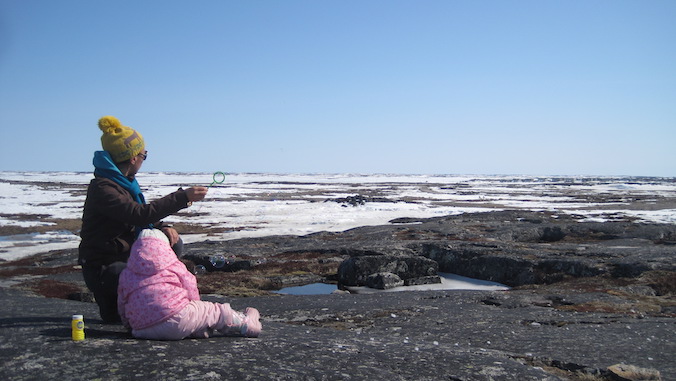
A recent survey provides robust evidence of a food security crisis in the eastern Arctic, and also solidifies how Indigenous groups' access to food is highly vulnerable to the effects of climate change. The University of Hawaiʻi at Mānoa contributed to international research on food security (PDF), or the ability to access and afford food, in Nunavik, the northernmost region of Quebec in Canada.

Released in May 2022, the population health survey was conducted in 2017 and included more than 1,300 respondents from the 14 villages in Nunavik. More than 90% of the population of Nunavik are Inuit, an important Indigenous group in Canada, said co-author Catherine Pirkle, associate professor of health policy and management at the Thompson School of Social Work & Public Health.
"There are parallels to be made between any community living off the land, and we see a lot of similarities between Inuit peoples and peoples in the Pacific with regard to climate change," she said. "People who are dependent upon or have strong links to land and water are often at high risk of food insecurity."






